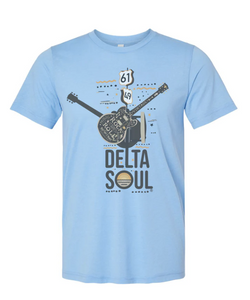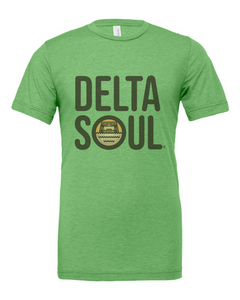The Enduring Legacy of the Delta Blues
The Enduring Legacy of the Delta Blues
In the sweltering heart of the Mississippi Delta, where the sun beat down with relentless intensity and the air was thick with the scent of damp earth and blooming cotton, a music was born. It was a music as raw and unforgiving as the land itself, a music that echoed the hardship and despair of a people bound by the shackles of poverty and oppression.
This was the Delta blues, a genre that emerged from the depths of African American communities in the early 20th century. It was a music that spoke of heartache and loss, of struggle and survival, of the resilience of the human spirit in the face of insurmountable odds.
One of the earliest pioneers of the Delta blues was Charley Patton, a man whose gnarled hands, like the roots of ancient cypress trees, coaxed forth a music that was both haunting and mesmerizing. Patton's voice, a gravelly rasp that rose and fell like the floodwaters of the Mississippi, carried tales of woe and tribulation, of love lost and found, of the endless struggle against the relentless hand of fate.
Another towering figure in the Delta blues was Son House, a man as tall and lean as the willow trees that lined the riverbanks. His music was a dark and brooding affair, filled with tales of the supernatural, of crossroads deals with the devil himself, of the inescapable grip of bad luck and misfortune. House's fingers danced across the fretboard of his guitar like they were conjuring spirits from the depths of the swamp, his voice a haunting incantation that echoed the despair of the human soul.
Robert Johnson, a man shrouded in mystery and enigma, was said to have sold his soul to the devil in exchange for his musical prowess. His songs were haunted and eerie, filled with images of death and decay, of the inescapable darkness that lurked at the edge of human existence. Johnson's music was a chilling testament to the power of the blues to tap into the darkest recesses of the human psyche.
These men, these Delta blues pioneers, were the voices of their people. They gave expression to the pain and suffering that were an inescapable part of their lives. Their music was a cry for redemption, a prayer for deliverance from the harsh realities of their existence.
The Spread of the Delta Blues
As the years passed, the Delta blues spread northward, carried by the migration of black Southerners seeking a better life in the industrial cities of the North. Chicago, in particular, became a hotbed of Delta blues activity, as musicians like Muddy Waters, Howlin' Wolf, and B.B. King electrified the genre, infusing it with a raw energy that resonated with the urban blues scene.
Muddy Waters, with his signature slide guitar and soulful vocals, became the undisputed king of Chicago blues. His music, infused with the grit and grime of the city, captured the essence of the African American experience in the North.
Howlin' Wolf, with his booming voice and powerful stage presence, personified the raw, untamed spirit of the Delta blues. His music was a force of nature, a hurricane of sound that swept over audiences and left them breathless.
B.B. King, with his smooth, sophisticated style, brought the Delta blues to a wider audience. His music, infused with elements of jazz and pop, transcended racial and cultural barriers, making him one of the most popular blues artists of all time.
The Enduring Legacy of the Delta Blues
The Delta blues, born out of the hardship and despair of a marginalized people, had become a powerful force in American music, its influence stretching far beyond its humble beginnings. It was a music that spoke to the human condition, a music that transcended race and class, a music that continues to inspire and move listeners today.
Today, the Delta blues continues to thrive, thanks to a new generation of musicians who are keeping the tradition alive. Artists like Christone “Kingfish” Ingram, Cedric Watson, and Valerie June are drawing inspiration from the genre's rich history while also forging their own unique paths.
These contemporary Delta blues artists are ensuring that the genre's legacy continues to thrive for generations to come. The Delta blues is not just a relic of the past; it is a living, breathing tradition that continues to inspire and move listeners around the world.









